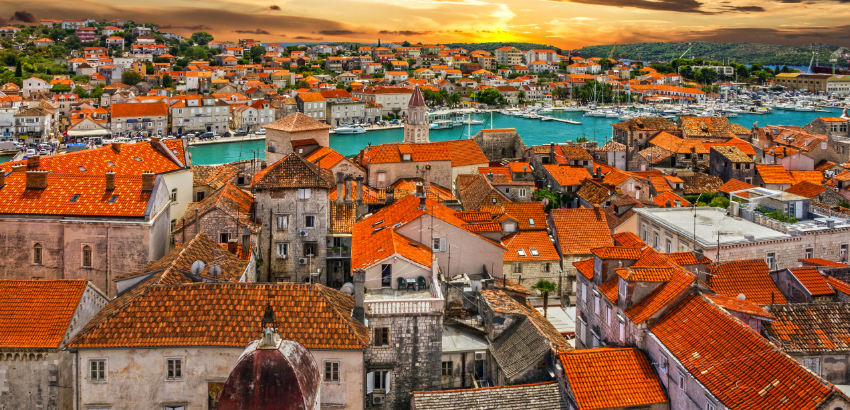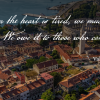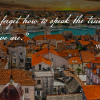
Published: September 15, 2000
View the Original Newsletter: Iskra-66.pdf
About This Issue
The September 2000 issue of Iskra captures a moment of deep reflection in Croatia’s postwar journey. As the country approached a decade of independence, editor Valentina Krčmar and her contributors offered both celebration and critique—examining democracy, justice, and moral courage in a society still healing from war and political transition.
This issue balances hard truths about corruption and media control with the enduring hope found in community spirit, faith, and cultural preservation.
Editorial: “Do We Understand Democracy?”
Valentina opens with a candid message about misunderstanding democracy—both in Croatia and among the diaspora. She reflects on local tensions in Toronto, where volunteers selling Iskra faced criticism from individuals unable to accept differing opinions. Her response is dignified yet firm: democracy means freedom of choice, not the suppression of another’s voice.
“I am not afraid of attacks on Iskra—because I have a clear conscience, and that is its driving strength.”
She invites readers to act with respect and openness, reminding the community that unity and understanding, not hostility, will keep the Croatian spirit alive abroad.
National Outlook: “All Is Not Well in Croatia”
Contributor Stavko Butković writes a sobering piece after attending the 4th Convention of the Croatian World Congress in Zagreb. His observations highlight frustration with the country’s internal divisions, media bias, and the politicization of justice.
He questions the selective reporting in Croatian newspapers and the lack of coverage on the Congress’s resolutions—especially the call to investigate mass graves and war crimes committed in the years following World War II.
Butković also warns against scapegoating a handful of “wealthy families” for economic troubles, pointing instead to the long-term impact of communist-era corruption, the destruction of industry under Yugoslavia, and the devastation of the recent war.
His conclusion is pragmatic but urgent: Croatia must identify its real problems honestly if it hopes to solve them.
“If the real problems are hidden, then we cannot expect real solutions.”
Political Landscape
Several articles track Croatia’s shifting political balance under President Stjepan Mesić and Prime Minister Ivica Račan. The tone across the issue reflects growing unease over cooperation with The Hague Tribunal and the perception that national heroes are being unfairly targeted.
Reports also describe debates on privatization, unemployment, and economic stagnation, emphasizing a common desire for justice without betrayal of national pride.
Diaspora Voices
In Canada, Croatian organizations continued to show vitality:
-
HDZ branches in North America issued a resolution reaffirming loyalty to Dr. Franjo Tuđman’s legacy and rejecting attempts to criminalize the Homeland War.
-
Writers like Josip Mioč and Ivica Puhalo contributed heartfelt reflections on exile, faith, and the enduring connection to homeland.
-
Several contributors warned of rising apathy and disunity within the diaspora and called for renewed collaboration across communities.
Faith and Reflection
Spiritual content remains a pillar of the publication. This issue includes meditations on the Virgin Mary of the Stone Gate, a symbol of Zagreb’s endurance and divine protection. The section reminds readers that even in turbulent times, faith remains the foundation of Croatian identity.
“We may be tested as a people, but faith is the light that keeps our path clear.”
Health & Wellness: Strengthening the Body’s Defenses
Dr. Darko Desaty presents a practical seven-day nutrition plan to strengthen the immune system—linking physical health with mental and spiritual well-being. His message reflects the newsletter’s ongoing commitment to caring for the whole person, not just the political citizen.
Community and Culture
Readers find a comforting mix of local updates and traditional culture:
-
Tributes to community members, including Josip Gabre, a writer and poet remembered for his resilience and optimism.
-
A collection of traditional pastry recipes—from cherry and apple strudels to savory cabbage rolls and pumpkin “bučnica”—that connect generations through heritage cooking.
-
Notices for cultural events, Croatian-language radio programs, and organizations like General Turist Travel Service, long serving the diaspora.
Closing Notes
In her final words, Valentina’s optimism shines through. Despite division, misinformation, and fatigue, she insists that truth and decency will outlast hostility. Iskra, she reminds readers, is more than a publication—it’s a voice for Croats everywhere who still believe in dignity, community, and faith.
“Our conscience is our strength. Let it be the light that never goes out.”




